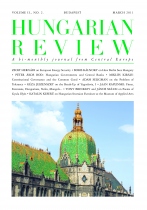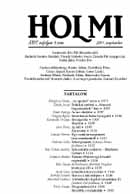Author(s): Ioana Raluca Voicu-Arnăuțoiu / Language(s): English
Issue: 02/2011
In 1990 in Romania, soon after the fall of the Ceauşescu dictatorship, 34 year old Ioana Voicu began searching for her real parents. She had been brought up in an orphanage, to which she now returned with a simple question. She wanted to find out who her parents really were, and the circumstances which had led to her being taken into state care. During her whole life up until this point, no-one had offered a single clue to help her.
The orphanage now gave her one lead, which led to another. And slowly the whole ball of string, and her own, astonishing story unravelled. Her parents belonged to one of the last anti-Communist partisan groups of Romania, who had held out in a cave in the foothills of the southern Carpathian mountains for more than a decade after the Second World War. She was born in that cave to Toma Arnăuţoiu and Maria Plop, in 1956. Just two years later, the group were betrayed, after an intensive manhunt by the Romanian secret services, the Securitate. In the Securitate archives in Bucharest, Ioana even found the first photograph of herself, being carried down a rope ladder in her mother’s arms, after the betrayal. There were also pictures of her father, her mother, and other members of the group. Her father was found guilty of treason against Communist Romania, and executed with 15 other members of the group, in July 1959. Her mother died of illness and mistreatment in the same prison. And Ioana was taken into care, aged four years.
More...


